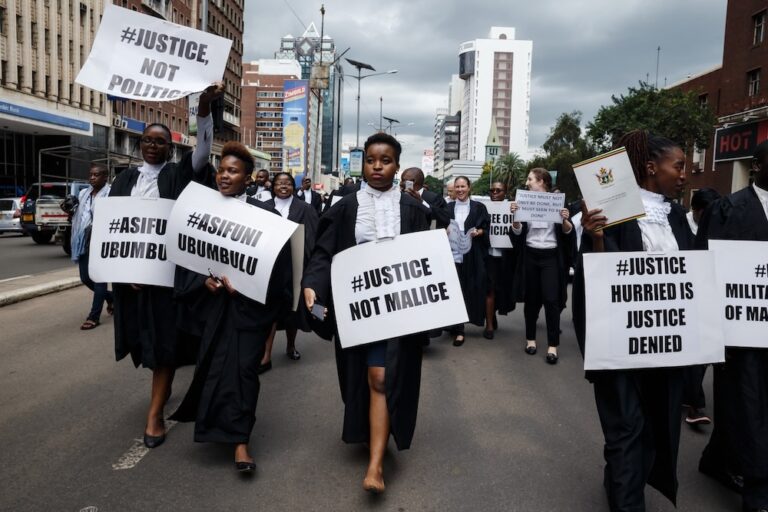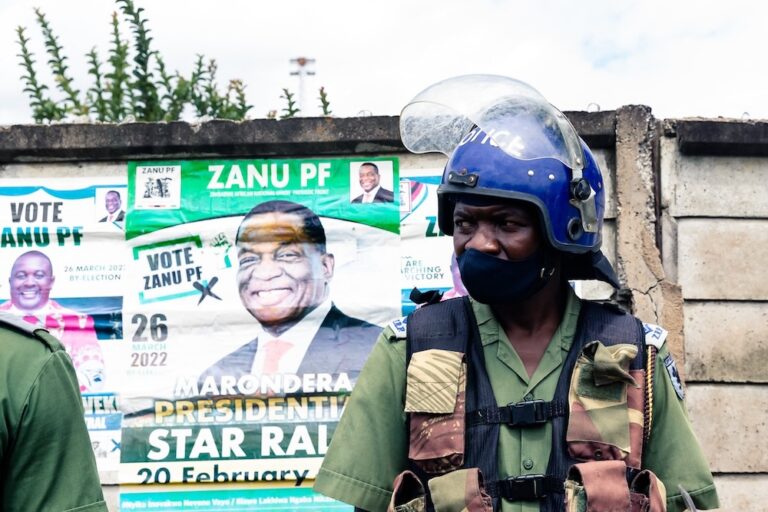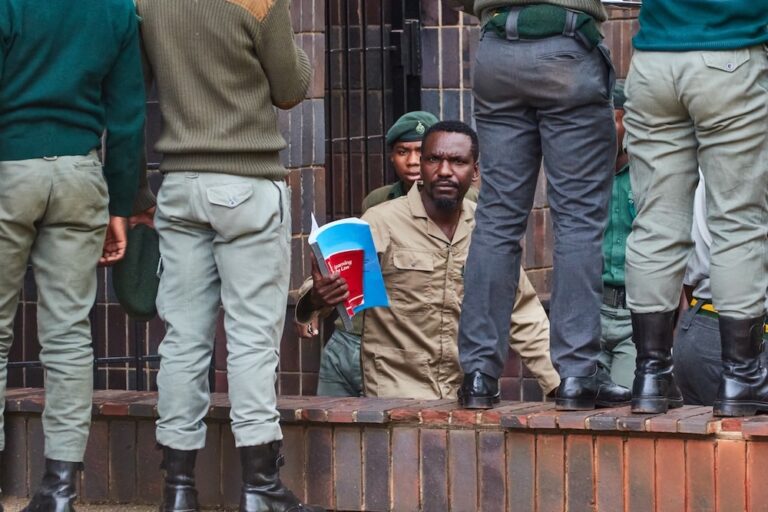(MISA/IFEX) – Zimbabwean Minister of State for Information and Publicity Jonathan Moyo has warned that the BBC could be permanently banned from reporting from Zimbabwe. Addressing local and foreign journalists in Bulawayo, Zimbabwe’s second largest city, on 8 March 2002, Moyo said he had information that some BBC reporters had entered the country. “There is […]
(MISA/IFEX) – Zimbabwean Minister of State for Information and Publicity Jonathan Moyo has warned that the BBC could be permanently banned from reporting from Zimbabwe.
Addressing local and foreign journalists in Bulawayo, Zimbabwe’s second largest city, on 8 March 2002, Moyo said he had information that some BBC reporters had entered the country. “There is a large and divergent media in the country, with over 500 journalists, but we are dismayed with reports from the BBC, who are boasting that some of its journalists have sneaked into the country,” said Moyo.
Moyo said that the BBC reporters’ conduct was illegal and demonstrated why his department refused accreditation to the BBC to cover the recent presidential elections.
In reference to Pierre Schori, the head of the European observer mission that left Zimbabwe before the elections, Moyo said “the BBC would not succeed where Schori failed.” He added that “those BBC people are not better than terrorists and that is why they do not deserve to be here.”
“Those elements, if caught, might take long to go back to their home country and they are not even ashamed as they are boasting about it. In fact they have compromised their working in Zimbabwe for a temporary moment that might not have been permanent,” said Moyo.
The Department of Information and Publicity said that two BBC correspondents, John Sweeney and Fergal Keane, also entered the country in February and spent two weeks in the Matabeleland region, investigating the violence that gripped the region after independence.
Background Information
The Zimbabwean government refused accreditation to the BBC and many other international media organisations on allegations of biased reporting. According to the Department of Information and Publicity, over 580 foreign journalists were accredited to cover the elections. This figure could not be independently verified. The department has also threatened to find all foreign journalists who are working “illegally” in Zimbabwe.


